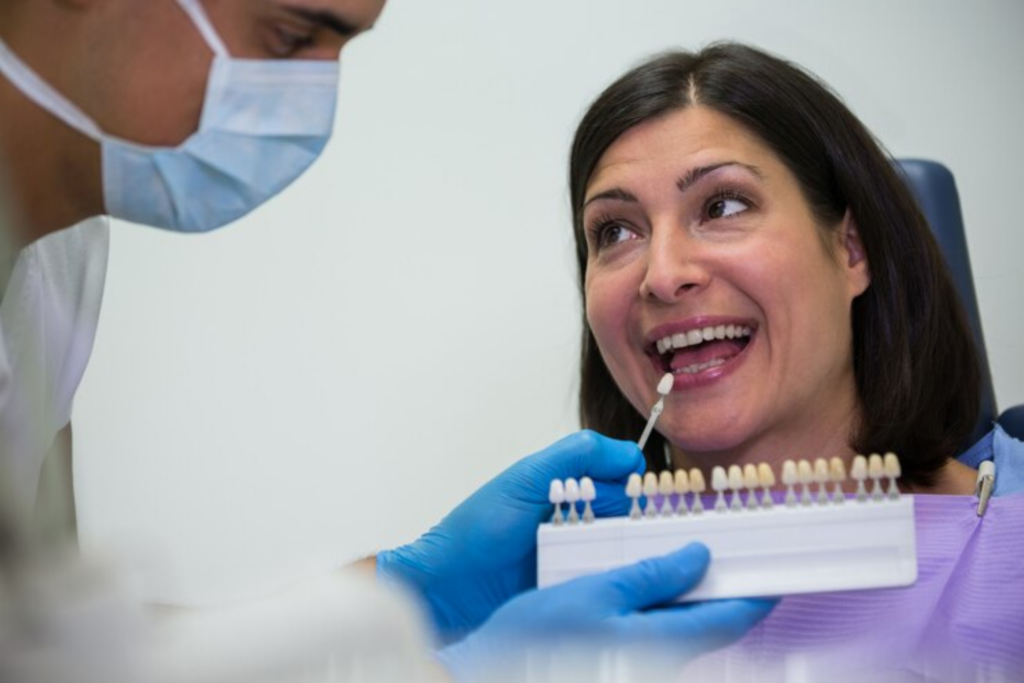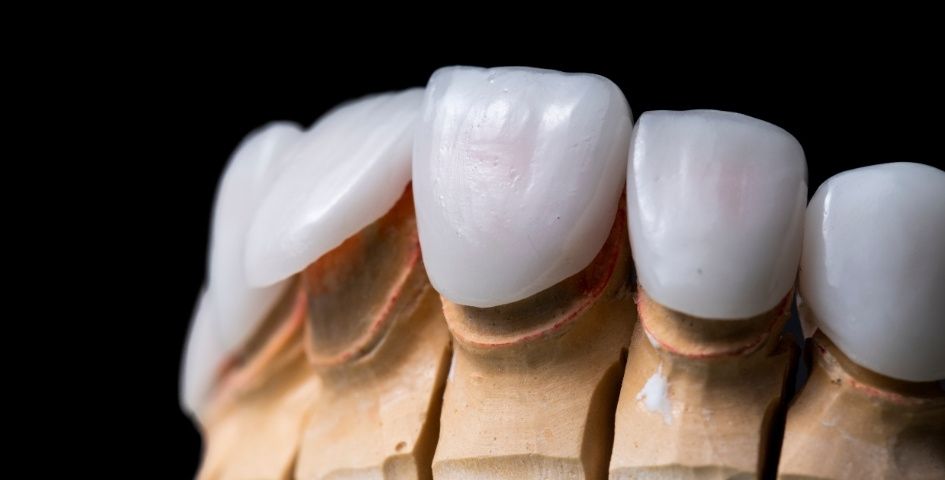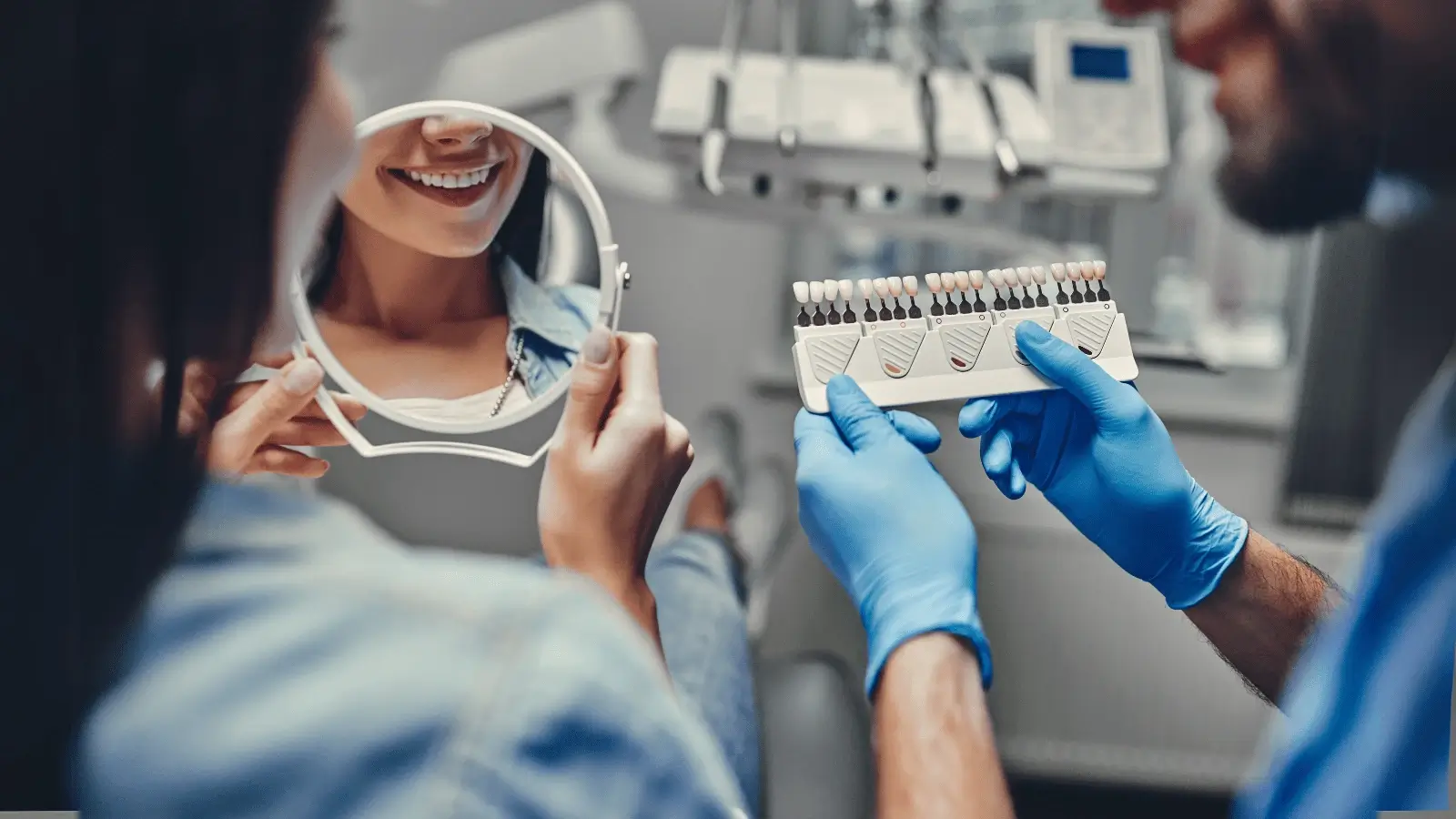
Dental veneers are a popular cosmetic dentistry option for improving the appearance of teeth by covering imperfections such as discoloration, chips, or gaps. While they generally provide a durable and aesthetically pleasing solution, some individuals may experience discomfort or pain after the procedure. If you find yourself in this situation, it’s essential to understand the potential causes and what steps to take to alleviate the pain and ensure your dental health. In this comprehensive guide, we’ll delve into the common reasons behind major pain after getting dental veneers and provide actionable advice on what to do.
Understanding Dental Veneers
Before addressing post-procedure pain, it’s beneficial to understand what dental veneers are and how they are applied:
- Definition: Dental veneers are thin, custom-made shells typically made of porcelain or composite resin. They are bonded to the front surface of teeth to improve their appearance.
- Procedure: The process involves preparing the teeth by removing a small amount of enamel to accommodate the veneers. Then, impressions of the teeth are taken to create veneers that fit precisely.
- Benefits: Veneers can enhance the color, shape, size, or length of teeth. They are stain-resistant and can provide a natural-looking smile.

Common Causes of Major Pain After Dental Veneers
While discomfort after getting dental veneers is normal, significant or prolonged pain may indicate an underlying issue. Here are some potential causes:
- Temporary Sensitivity: It’s common to experience increased tooth sensitivity to hot or cold temperatures immediately after the procedure. This sensitivity typically subsides within a few days as the teeth adjust to the veneers.
- Improper Bite Alignment: If the veneers alter your bite or if they are too thick, it can cause pressure on the teeth and gums, leading to pain or discomfort when chewing or biting down.
- Nerve Irritation: In some cases, the process of preparing the teeth for veneers can irritate the dental pulp (nerve tissue), causing temporary or persistent pain.
- Gum Irritation: If the edges of the veneers are not smooth or if they extend too far onto the gum line, it can irritate the gums and cause inflammation or discomfort.
- Adhesive Issues: Problems with the bonding material used to attach the veneers to the teeth can result in pain or sensitivity. This may require adjustments or replacement of the veneers.
What To Do If You Have Major Pain After Getting Dental Veneers
Experiencing major pain after getting dental veneers can be concerning, but there are several steps you can take to manage discomfort and address the underlying cause:
1. Contact Your Dentist Immediately
If you are experiencing severe or persistent pain after getting dental veneers, the first and most important step is to contact your dentist. They will be able to assess the situation and determine the cause of the pain. Prompt communication with your dentist is crucial for timely intervention and relief.
- Describe Your Symptoms: Provide detailed information about the location, type, and severity of the pain you are experiencing. This will help your dentist make an accurate diagnosis.
- Schedule an Appointment: Depending on the severity of your symptoms, your dentist may recommend scheduling an emergency appointment. They may also provide guidance over the phone on how to manage your pain until you can be seen.
2. Manage Discomfort at Home
While waiting to see your dentist, there are several home remedies and practices that may help alleviate pain and discomfort:
- Over-the-Counter Pain Relievers: Take over-the-counter pain medications such as ibuprofen or acetaminophen as directed to reduce pain and inflammation.
- Avoid Extreme Temperatures: Stick to lukewarm or room temperature foods and beverages to minimize sensitivity.
- Soft Diet: Choose soft foods that are easy to chew and won’t exacerbate discomfort. Avoid hard, crunchy, or sticky foods that could put pressure on the veneers.
- Saltwater Rinse: Rinse your mouth with warm saltwater to help reduce inflammation and promote healing of irritated gums.
3. Evaluate Your Bite
If the pain is related to improper bite alignment or pressure on certain teeth, pay attention to how your teeth come together when biting down:
- Gentle Adjustment: Try to avoid chewing on the side where you feel discomfort. If possible, use the other side of your mouth for chewing.
- Observe Your Veneers: Take note of any areas where the veneers feel too high or uneven. This information will be helpful for your dentist during your appointment.
4. Follow Your Dentist’s Recommendations
During your dental appointment, your dentist will evaluate the veneers and determine the appropriate course of action:
- Adjustments: Depending on the cause of the pain, your dentist may need to make adjustments to the veneers to improve their fit and comfort.
- Replacement: In some cases, if the veneers are causing persistent issues, they may need to be replaced with new ones that fit better and alleviate discomfort.
- Additional Treatment: If there is an underlying issue, such as nerve irritation or gum inflammation, your dentist may recommend additional treatments to address these concerns.
5. Preventive Measures for Future
Once the pain has been addressed and resolved, take preventive measures to ensure the long-term health and comfort of your dental veneers:
- Regular Dental Check-ups: Schedule regular dental appointments for routine check-ups and maintenance of your veneers.
- Practice Good Oral Hygiene: Brush and floss your teeth regularly to prevent plaque buildup and maintain the health of your gums.
- Protect Your Veneers: If you grind your teeth at night, consider wearing a night guard to protect your veneers from wear and damage.
Experiencing major pain after getting dental veneers can be distressing, but it’s important to take prompt action and seek assistance from your dentist. By understanding the potential causes of pain and following the recommended steps, you can effectively manage discomfort, address underlying issues, and ensure the long-term success of your dental veneers. Remember, your dentist is your best resource for diagnosing and treating any complications related to dental veneers, so don’t hesitate to reach out for assistance when needed. Your smile deserves to be healthy, comfortable, and beautiful.



